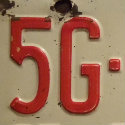
Deutsche Telekom's European head Claudia Nemat has urged the European telecom industry to pull together on 5G and other critical mobile technologies or risk losing out to the US and Asia.
Her concerns, which featured in a blog on Deutsche Telekom AG (NYSE: DT)'s website, echo fears previously voiced by the region's technology leaders and come days ahead of the Mobile World Congress (MWC), the annual Barcelona event that represents the mobile sector's biggest trade show.
Nemat warns organizations based in the region that without more European initiatives and standards "our only place in this global competition will be as a location for others to sell their services."
Offering some of her insight into issues that will generate heated debate during MWC, Nemat picks 5G, eSIMs and the integration of fixed and mobile networks as critical areas for European players.
5G looks set to be an especially hot topic at the show, with the Next Generation Mobile Networks association due to provide an update on the technology at Deutsche Telekom's show stand on March 3. (See NGMN Releases Early 5G Vision.)
As if to back up her concerns, however, Nemat cited China's Huawei Technologies Co. Ltd. as an example of a technology vendor at the forefront of 5G development, neglecting to mention Sweden's Ericsson AB (Nasdaq: ERIC), Finland's Nokia Networks or France's Alcatel-Lucent (NYSE: ALU). (See Eurobites: Operation 'Woo China' Kicks In.)
Huawei expects a global 5G standard to be ready in 2016 or 2017 and reckons 5G services could be launched in some cities as soon as 2018. But, as Nemat acknowledged, other players think it will be 2020 at the earliest before 5G technology finally appears. (See Huawei Targets 4.5G Mobile by 2016 .)
Want to know more about 5G? Check out our 5G content channel here on Light Reading.
Nemat also emphasizes the importance of eSIMs -- embedded SIM cards that companies will be able to re-program remotely -- noting that Deutsche Telekom has been working with international bodies on developing an open eSIM standard.
That Deutsche Telekom views eSIMs as a priority is little surprise. Along with other operators, the German incumbent sees a big opportunity in the emerging Internet of Things (IoT) and M2M markets. "Everything will be connected, but many devices simply aren't suited to carry SIM cards built the way they are today," said Nemat.
Nevertheless, investors hoping IoT and M2M will be revenue-growth stories for Deutsche Telekom may feel somewhat discouraged by Nemat's remarks. "The simplest thing will be to have one contract with a single service environment that users can activate on all their devices with just one click," she said. That implies average revenue per device is going to sink.
In the meantime, the German incumbent is hoping to build an advantage over its regional rivals with its deployment of a pan-European all-IP network that can support both fixed and mobile technologies.
Following its acquisition of GTS Central Europe last year, Deutsche Telekom now maintains fixed and mobile networks across most central and eastern European markets, and it aims to complete its transition to all-IP technology in 2018. (See Deutsche Telekom, Colt Join Forces on Voice and Europe's Fiber Sell-Off.)
The operator is pioneering a "borderless" approach to its network rollout that is intended to support major cost savings and the ability to launch new services in multiple markets with greater agility.
"In Europe, network planning today only ever extends as far as national borders. Why?" asks Nemat. "We can and must think of network architecture without borders. If we can break down borders in Europe we can give [the US and Asia] a run for their money."
— Iain Morris, 

 , News Editor, Light Reading
, News Editor, Light Reading
Read more about:
EuropeAbout the Author(s)
You May Also Like











